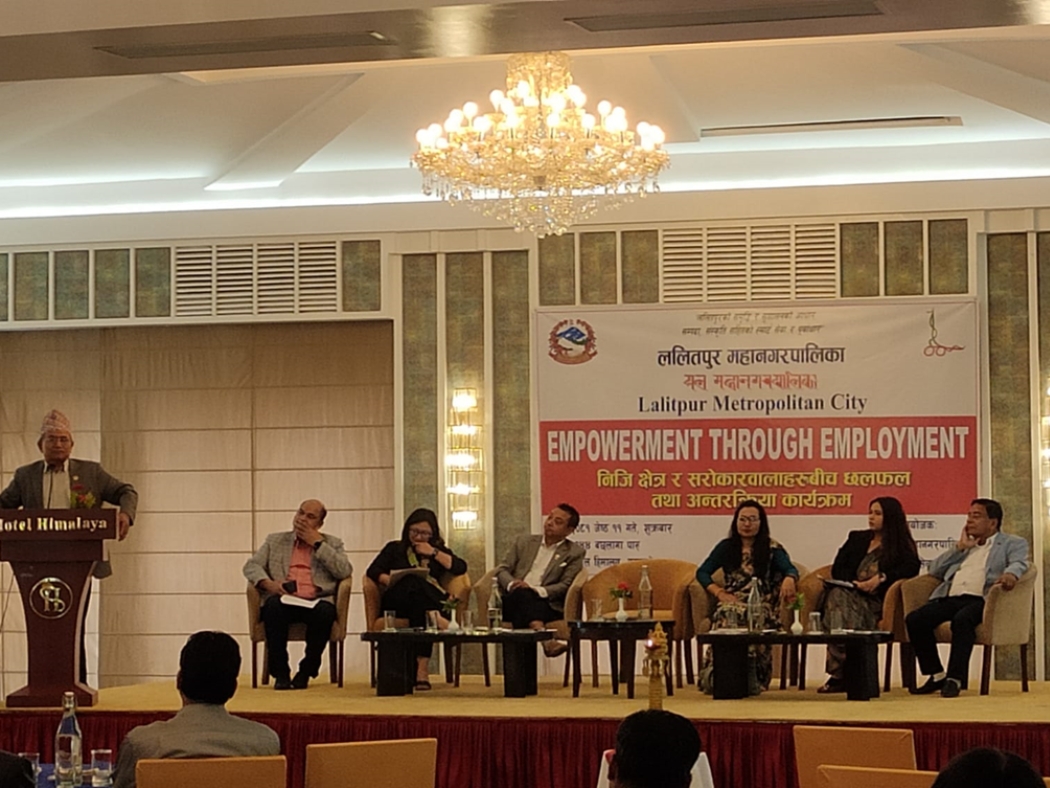
Delivery of On-The-Job Capacity Development Programme on Employment Services to Model Employment Service Centers- ILO

In the partnership of International Labour Organization (ILO), Action for Development (AfD) performed a consultant role to strengthen the capabilities of officials at 13 Model Employment Service Centres (ESCs) through a comprehensive On-The-Job Capacity Development Programme. This initiative, as outlined by the ILO, seeking to improve employment promotion services by equipping ESC officials with the necessary skills and knowledge to effectively engage with both job seekers and employers. The project aligns with the Integrated Labour and Employment Service (Management and Operation) Procedure 2023 of the Ministry of Labor, Employment and Social Security (MoLESS).
The ESCs serve dual roles, providing services to both job seekers and employers. For job seekers, services include information on the labor market, access to job vacancies, advice on job search methods, and employability improvement initiatives. For employers, the ESCs offer information on labor market supply, assistance in preparing job vacancy notices, and details on participating in apprenticeships or other on-the-job training activities.
The project's approach is structured in several phases:
Inception Phase:
A detailed activity implementation plan was created, including a timeline, responsible personnel, and types of support for the ESCs. An initial orientation workshop in Kathmandu was organized for selected experts and staff to understand the challenges, gaps, and requirements of the model ESCs. This was culminated in an inception report detailing the overall methodology, approaches, and a detailed work plan, which was submitted to the ILO and other stakeholders for review and approval .
Capacity Development Needs Assessment:
Experts conducted a comprehensive assessment of each model ESC, involving officials, municipal representatives, and key stakeholders to understand specific challenges and requirements. This assessment informed the customization of support activities for each ESC.

Capacity Development Support:
Experts were deployed to the ESCs, spending 10 days per month over four months. These experts provided hands-on coaching and technical assistance to the ESC officials. The support strategy includes deploying a team of experts to different clusters, with each expert covering specific metropolitian and municipality offices based on their residence and preferences. The experts assigned from AfD developed tools for career and vocational employment counselling based on needs assessment, and developed an annual work plan for all model ESC's. Center staff received training on counselling skills through group and individual demonstrations and examples.
Organizing Private Sector Engagement (PSE) meetings:
The PSE meetings were organized in each ESC with the participation of 25-30 representatives from the private sector, related government organizations, nearby TVET providers, workers’ organizations, and other relevant key stakeholders. Agendas such as mandate, requirement, structure, and expectation of ESC were shared with the stakeholders, and potential areas of partnership such as employment creation, promotion of public employment service, support for job fairs, organizing job fairs periodically, and establishment of a referral system were discussed with the stakeholders.
Supported for organising job fairs:
The model ESCs participated in the provincial-level job fairs.The AfD experts supported the centre staff in planning the event, designing and developing promotional materials, coordinating and ensuring the participation of employers and job seekers, group and individual counselling and documentation, and establishing a referral system after job fairs.
The project also emphasised stakeholder mapping and the use of information to enhance service delivery. This involved developing forms and formats for mapping activities, maintaining and updating data, and supporting the development of tools to conduct labour market assessments and skills gap analyses. Additionally, the project documented best practices by producing case stories and success studies from the ESCs, capturing the impact of the interventions on beneficiaries .
Overall, this project aimed to build a strong and efficient system within the ESCs to better serve job seekers and employers, ultimately contributing to the broader goal of employment promotion and labour market development in the region.


1716882354.jpg)

1719820174.jpg)